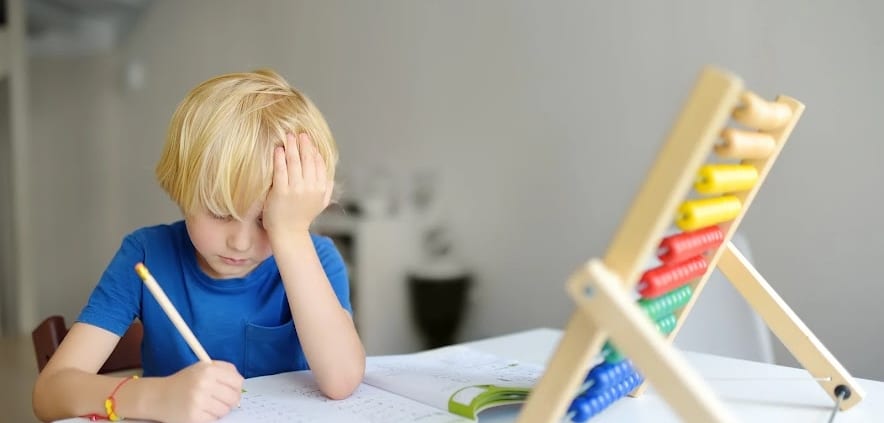Supporting children with learning disabilities requires a tailored approach to help them thrive academically and personally. Whether your child has dyslexia, ADHD, or another learning challenge, tutoring can provide invaluable assistance. Tutoring services in Vancouver offer specialized instruction to meet the unique needs of these students. This blog will explore effective tutoring services to help children with learning disabilities succeed, whether working with a tutor or learning at home.
Understanding Learning Disabilities
Learning disabilities (LDs) affect how individuals process, understand, and retain information. Neurological differences can impact various aspects of learning, including reading, writing, math, and attention. Common learning disabilities include:
- Dyslexia (affects reading and language skills)
- Dyscalculia (affects math skills)
- Dysgraphia (affects writing and fine motor skills)
- ADHD (affects attention, focus, and impulsivity)
Effective Tutoring Tips for Learning Disabilities
- Personalized Learning Plans Every child with a learning disability is different. Creating a customized learning plan based on your child’s strengths, challenges, and learning style is essential. A personalized approach ensures that the tutoring sessions target the areas where your child needs the most support. For example, if your child struggles with reading comprehension due to dyslexia, the tutor can focus on phonics and decoding skills, rather than following a general reading curriculum.
- Multisensory Learning Techniques Children with learning disabilities often benefit from multisensory learning, which involves using multiple senses—sight, sound, touch, and even movement—to help them grasp concepts. For instance, tutors might use:
- Tactile learning aids such as letter tiles or sandpaper letters to reinforce phonics.
- Visual aids like color-coded charts or diagrams to explain complex ideas.
- Auditory tools such as audiobooks or verbal repetition to improve retention. By engaging multiple senses, tutors can reinforce information in ways that stick with the child.
- Break Learning into Small Steps Children with learning disabilities can become overwhelmed when faced with too much information at once. Breaking lessons into smaller, manageable chunks allows them to focus on one concept at a time. Tutors should use step-by-step instruction, ensuring the child masters each step before moving on to the next.
- Repetition and Reinforcement Repetition is crucial for children with learning disabilities. Concepts must be reviewed multiple times before they are fully understood and remembered. Tutors should build repetition into each session, using exercises and activities to reinforce new skills. Flashcards, drills, and interactive games can make the process more enjoyable and less repetitive for the child.
- Use of Assistive Technology There are a variety of assistive technologies designed to support children with learning disabilities. For example:
- Text-to-speech software helps children with dyslexia by reading aloud what’s written on the screen.
- Speech-to-text programs can assist children with dysgraphia who struggle with writing.
- Math apps can provide visual aids for children with dyscalculia to understand number concepts.
- Positive Reinforcement Encouragement is key when tutoring children with learning disabilities. They may feel discouraged after facing challenges in a traditional classroom setting. By using positive reinforcement—praising effort, celebrating small victories, and focusing on their progress—tutors can help children build confidence in their abilities. Success breeds motivation, and when children see that they are improving, they are likelier to stay engaged in their learning.
- Establishing Routines and Structure Children with ADHD or other attention-related disorders often thrive in environments that provide structure and routine. Tutors should create a predictable schedule for each session, setting clear goals and expectations at the beginning. Using a visual schedule can help children stay focused, as they know what to expect next.
- Building Self-Advocacy Skills Tutoring isn’t just about academics; it’s also about empowering children to advocate for themselves. Encouraging students to ask questions, express their needs, and communicate their learning preferences can help them develop important self-advocacy skills. As they grow older, these skills will be essential for navigating high school, college, and beyond.
- Collaboration with Parents and Teachers Successful tutoring for children with learning disabilities involves collaboration between the tutor, parents, and teachers. Keeping open lines of communication ensures that everyone is on the same page regarding the child’s progress, challenges, and goals. This collaboration helps reinforce the strategies used in tutoring sessions at home and the classroom, creating a cohesive support system for the child.
Choosing the Right Tutor in Vancouver for Learning Disabilities
Finding the right tutor is crucial for a child with a learning disability. Look for a tutor service in Vancouver who specialize in working with children with LDs and have experience with specific learning strategies, such as multisensory learning or assistive technology. Here are a few things to consider:
- Training and credentials: Tutors with specialized training in learning disabilities or education can provide more targeted support.
- Patience and empathy: Tutors should be understanding and patient, creating a safe, supportive environment where children feel comfortable learning.
- Adaptability: A great tutor knows how to adapt their teaching methods to meet the individual needs of the child.
- Positive reviews: Look for feedback from other parents about the tutor’s effectiveness in working with children with learning disabilities.
Learning disabilities don’t have to stand in the way of academic success. With the right strategies, personalized attention, and support, children with learning disabilities can thrive. Contact Mrs. Sam’s tutoring services in Vancouver provide the specialized, compassionate instruction that these students need to build confidence, improve their skills, and achieve their potential.
By using multisensory learning, personalized plans, and positive reinforcement, Mrs. Sam helps children overcome challenges and discover their strengths. If you’re looking for an experienced tutor who understands how to work with children with learning disabilities, Mrs. Sam is the perfect choice to support your child’s educational journey.









